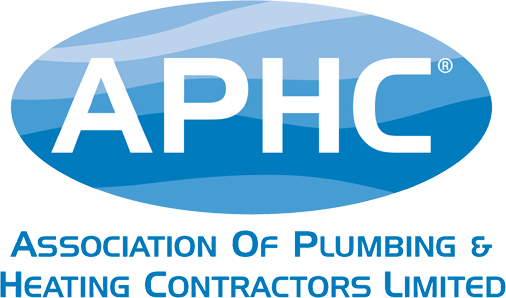Managing sickness absence across your workforce is a difficult and time-consuming task. It’s also an inevitability in the modern business world—and a major part of employment law.
So, you should prepare for staff taking statutory sick leave in the UK with a thorough and fair process. You should also inform your staff members what this is.
In this guide, we’ll take you through the requirements for your business.
What’s your employees’ sick leave entitlement and statutory sick pay?
In the UK, it’s a staff member’s right to take sick leave if they’re ill. UK sick leave law legislation is under Statutory Sick Pay (SSP). Statutory sick pay is paid when the employee is sick for at least four days in a row, including non working days.
Generally speaking, your organisation does not need to pay SSP for the first three consecutive days of any sick leave period (these are classed as “waiting days”). Sometimes your business may need to pay the first three days if it’s a linked period (regular periods of illness).
The paid statutory sick pay for this is £95.85 per week. Organisations like the NHS and councils, can give their employees full pay when sick, and have what’s known as an occupational sick pay schemes. Companies can also set different sick pay schemes, but the amount cannot be less than the statutory sick pay.
How long can you be on sick leave?
Staff can claim 28 weeks’ worth a year if they call in sick. The sick leave reasons are many and varied. It could be due to:
- An accident or injury.
- Sudden sicknesses (such as the flu)
- Long-term illnesses.
Can an employer ask for a reason for sick leave?
Yes. Staff must provide you with proof of their sickness—that’s if they’re off ill for over seven days.
To do this, they can provide you with a fit note (“sick note”). Staff can obtain this from their GP or at a hospital. They’re free to get if the employee is off ill for seven days or more.
But what happens when sick leave entitlement runs out? You must respect your employee’s contract of employment and look for alternative routes to take, such as using annual leave days, or offering unpaid leave.
You may also wonder, “Is it illegal to work while on sick leave?” Yes it is, staff are not allowed to complete any work while they’re signed off sick.
Fit notes and proof of sickness
A “fit note” or previously named “sick note” is a written statement from a registered healthcare professional that gives their medical opinion on a person’s fitness for work. These are issued to be shown for sick pay purposes or to claim sickness related benefits.
A healthcare professional will assess your employee and issue a fit note that either advises “fit for work” or “may be fit for work taking into account the following advice”. As the employer you must support by making reasonable changes to help them still perform their role.
Can an employee be dismissed while on sick leave?
Yes, you can dismiss staff while they’re away due to sickness. You are expected to allow a reasonable amount of time for the employee to recover from their illness. Also, if the employee has a disability (which may include a long-term illness) you have a legal duty to make reasonable adjustments.
However, as with all dismissal processes, you must provide a strong business reason to do so.
For example, if you have to:
- Close due to financial difficulties.
- Make redundancies.
It’s essential to follow a fair process for any of the above and you’ll need to provide a genuine reason for ending an employee’s employment contract.
You would need to conduct a full capability procedure – this means having meetings with the claimant to discuss all options. To dismiss, it will need to be clearly demonstrated that all options have been considered over the employee’s return to work. If you don’t, it could result in a claim for unfair dismissal.
Requesting self-certification from employees
Staff can also self-certify. If they’re off for seven days or less, they don’t need to hand over a sick note.
Once they return to work, you can ask them to provide an explanation for their sickness absence. They can fill out a self-certification form to do this.
How sick leave works for staff holidays
A common question here is, “Does annual leave accrue on sick leave?”
Yes, employees build up (“accrue”) holiday entitlement if they’re off ill and that’s irrespective of how long they’re off from work.
However sick leave does not count as annual leave and you can’t cross over the two types of leave.
Going on holiday while on sick leave?
Although this sounds like it’ll break your company protocol, if your employee is ill, but physically able to take annual leave, then they can do so.
However, they’ll have to request this from you in their normal process and you don’t have to agree. But if the employee is sick on annual leave and on holiday, then they can take this as sick leave. That’s also the case if they’re about to go on holiday.
Claiming back annual leave if sick
Currently, the law allows an employee or worker who falls sick whilst on annual leave to convert the annual holiday leave to sick leave and take the holiday at a later date.
Therefore, if an employee is ill just before or during their holiday, they can take it as sick leave instead.
Employees job hunting during illness
Getting a new job while on sick leave is possible for employees to do, legally they can continue to find new opportunities while they’re away.
For instance, they may be off with mental health issues and decide to take a less stressful new role with a new business.
However, they must update you with the normal written letter of notice for any updates in to their employment situation.
What is unpaid sick leave?
This is where an employee takes time off work ill, but doesn’t receive any statutory sick pay (SSP).
An example of a situation where this would be necessary is when an employee needs to take time off to care for a dependent in an emergency, you must grant the time off, although you can decide whether they receive sick pay.
Statutory sick pay ends after 28 weeks of continuous sickness absence, and those who are absent longer than this will stop receiving statutory sick pay, so may wish to apply for employment and support allowance.
It can come about due to long term sick leave. If an employee has a serious illness, for example, then they can spend an extended period of time away from your business.
Expert advice
If you need guidance with any sick leave related topics, APHC members can access Croner details in the APHC Member Area.




